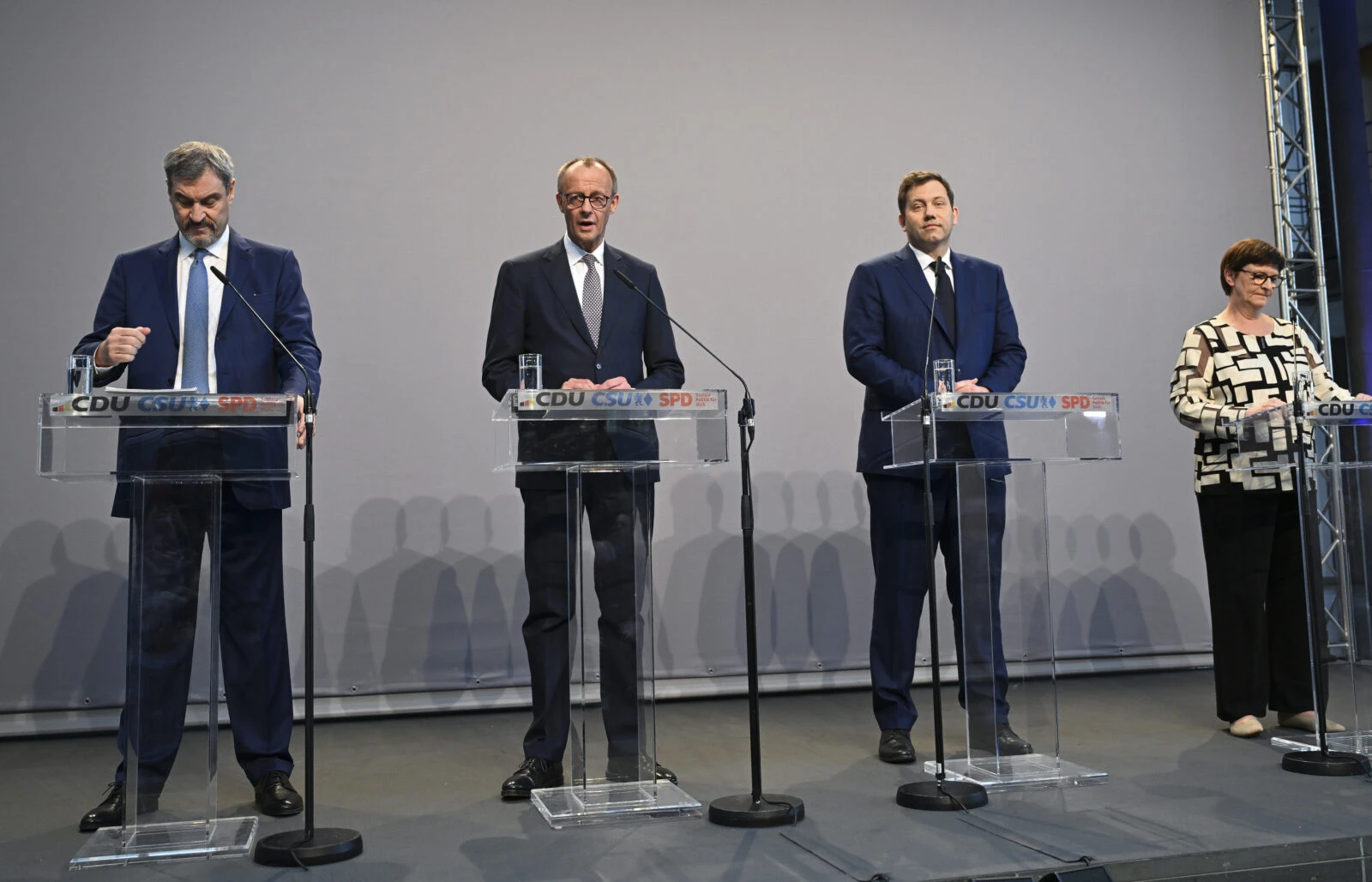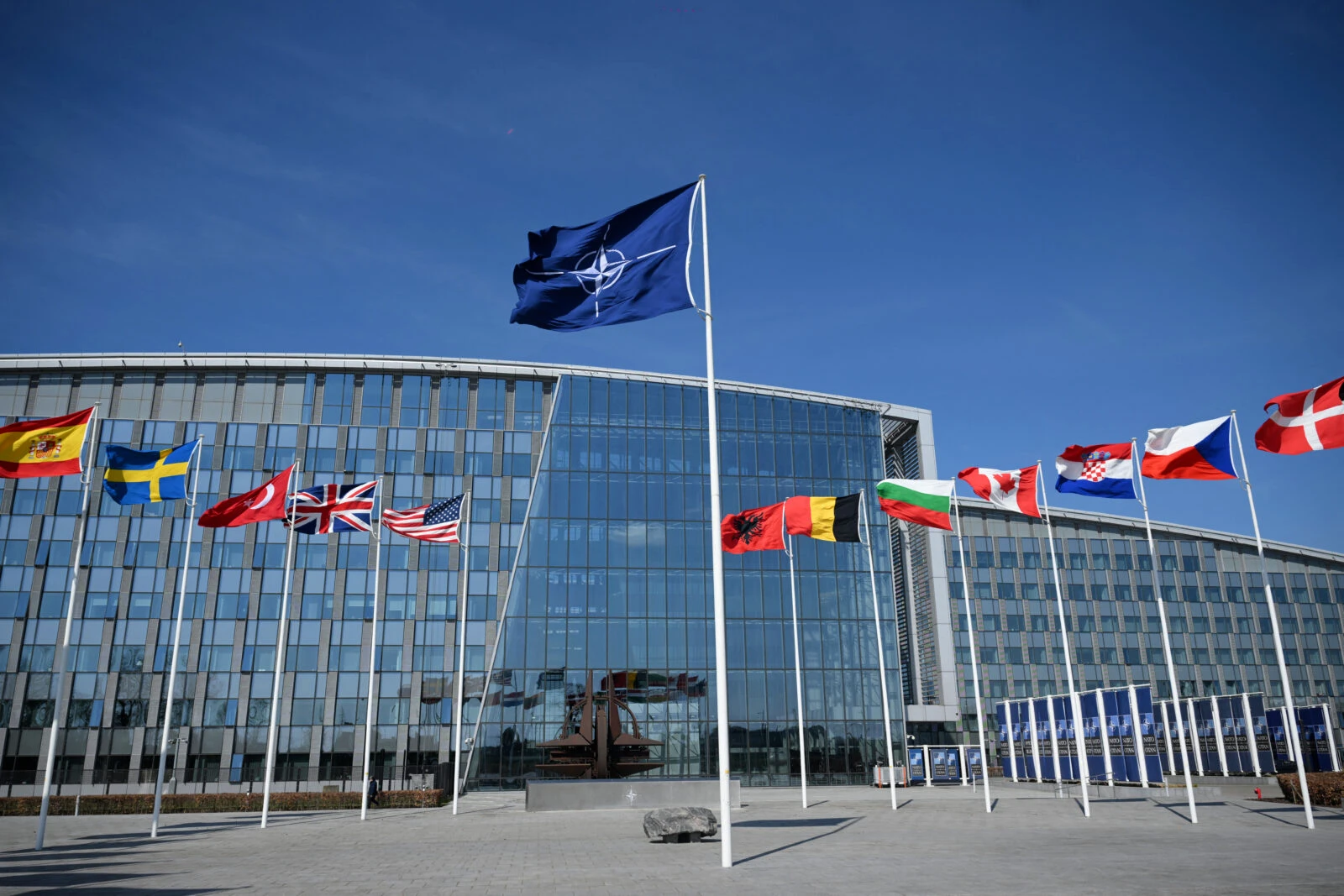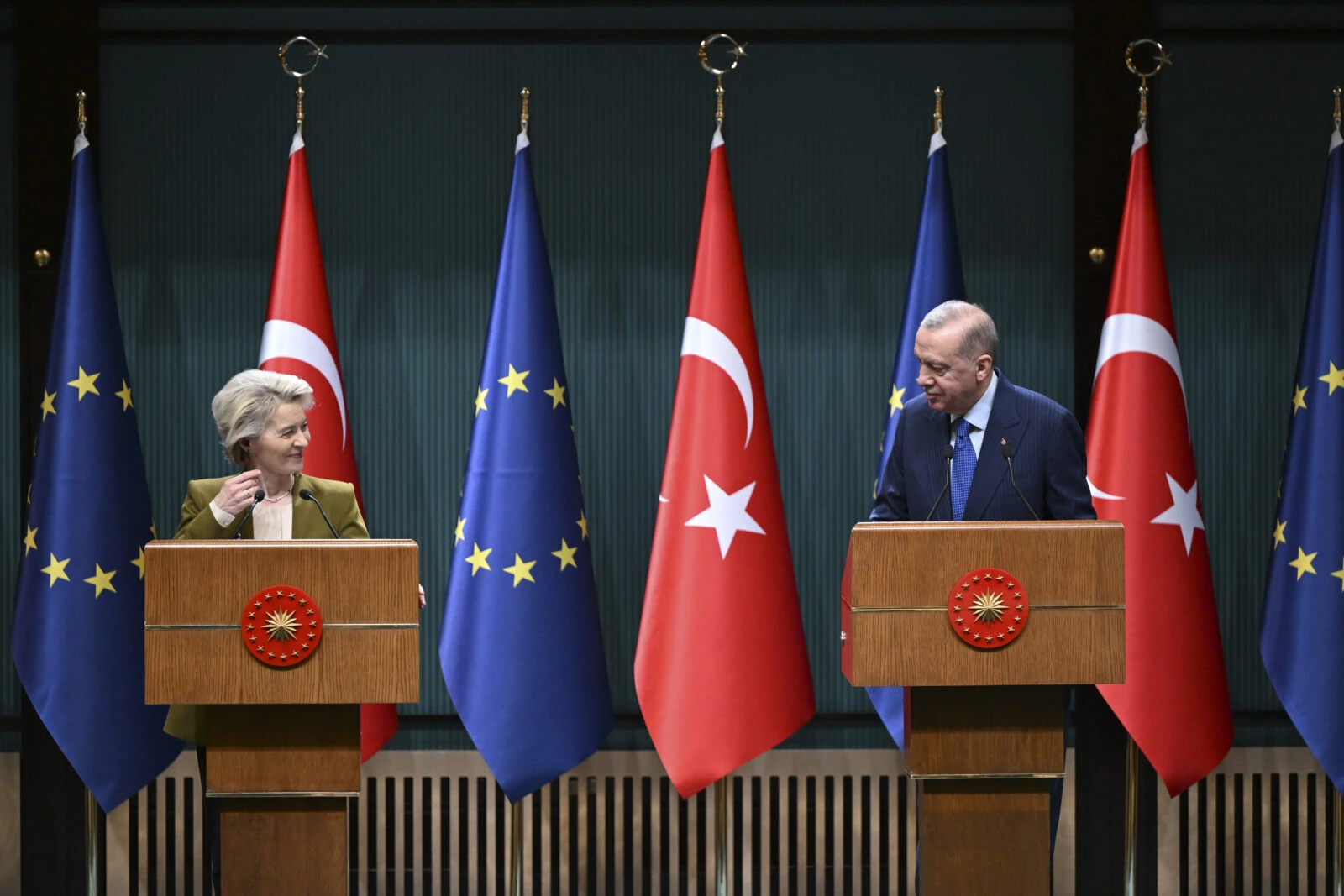Germany coalition deal highlights strategic importance of ties with Türkiye
 Friedrich Merz, leader of the Christian Democratic Union (CDU), Markus Soder, leader of the Christian Social Union (CSU), Lars Klingbeil and Saskia Esken, co-chairs of the Social Democratic Party (SPD), gather for a press conference at the Paul Lobe Building in Berlin, Germany on April 9, 2025. (AA Photo)
Friedrich Merz, leader of the Christian Democratic Union (CDU), Markus Soder, leader of the Christian Social Union (CSU), Lars Klingbeil and Saskia Esken, co-chairs of the Social Democratic Party (SPD), gather for a press conference at the Paul Lobe Building in Berlin, Germany on April 9, 2025. (AA Photo)
Germany’s incoming coalition government has finalized a 144-page agreement outlining its policy roadmap, with Türkiye prominently referenced as a strategic partner in both foreign and European Union affairs.
The agreement, reached between the Christian Democratic Union and Christian Social Union (CDU/CSU) and the Social Democratic Party (SPD) following the Feb. 23 snap elections, was formally presented in Berlin this week.

Türkiye defined as key strategic partner in NATO
In the foreign policy section of the coalition agreement, Türkiye is described as “an important strategic partner within NATO, a neighbor of the EU, and an influential actor in the Middle East.” The future government stated its intention to cooperate with Türkiye on matters of security policy, migration, and broader geopolitical challenges.
The document adds, “A fundamental improvement in the situation regarding democracy, the rule of law, and human rights is a central element for us.”

EU-Türkiye relations framed as of ‘special strategic importance’
In the chapter titled “The Role of the EU in the World,” the agreement further emphasizes Türkiye’s importance by stating, “Relations between the EU and Türkiye are of special strategic significance.”
However, it also notes concern about Türkiye’s current trajectory, saying, “We regret that Türkiye is increasingly distancing itself from the EU’s system of values.”
The coalition underscores that while it supports pro-European forces within Türkiye, progress on accession or closer ties remains conditional on improvements in democratic standards.

Migration policy to maintain border controls, restrict benefits
The coalition deal also outlines a series of migration and integration policies. Border checks introduced to prevent irregular migration will continue until an external EU border protection system is in place.
The coalition also plans to restrict social benefits for individuals without legal residency in Germany.
Under the agreement, asylum applications will be processed more swiftly, and individuals from countries such as Afghanistan and Syria who have committed crimes or pose public security risks will be subject to deportation.
Family reunification rights for asylum-seekers under limited protection status will be suspended for two years, with exceptions allowed in cases of severe humanitarian need.

Shift in citizenship policy: Turbo citizenship scrapped, dual citizenship retained
The agreement confirms the discontinuation of the “turbo citizenship” rule, which allowed foreigners to gain German nationality in as little as three years. Introduced in mid-2024 this policy will be revoked.
However, the new government will maintain dual citizenship rights and retain the five-year pathway to naturalization.
Social welfare reforms and economic adjustments
On social policy, the coalition plans to abolish the “Burgergeld” welfare benefit and replace it with a stricter program titled “Basic Security for Job Seekers.”
This support will only apply for the period required to secure employment, and repeated violations of job-seeking obligations may result in full termination of benefits.
The coalition also promises economic reforms, including income tax relief for low- and middle-income earners, new depreciation options for companies, and a phased reduction of corporate tax beginning in 2028.
The full agreement, and its emphasis on foreign relations and domestic reforms, was unveiled at a press conference attended by CDU leader Friedrich Merz and SPD officials.



